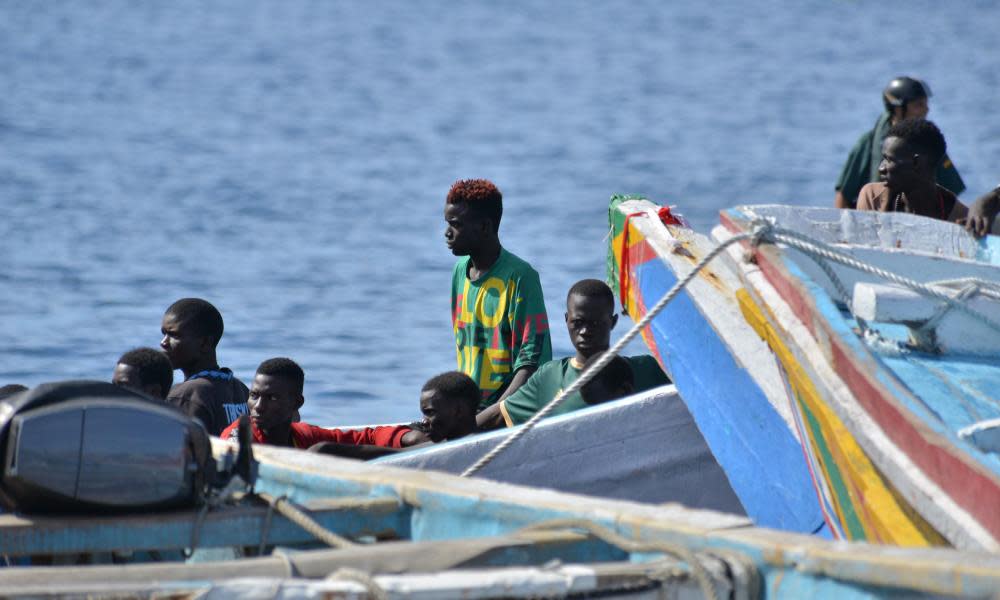Record numbers of refugees arrive in Canary Islands by boat

Nearly 32,000 men, women and children have reached the Canary Islands by boat so far this year on the world’s deadliest migration route, breaking a 17-year-old record for arrivals in the Spanish archipelago.
On Friday and Saturday, four boats carrying a total of 739 people arrived at El Hierro, the smallest and most westerly of the Canary Islands, along with the bodies of two people who had died on the perilous Atlantic route from Africa. A further two people died in hospital.
The latest arrivals bring the total number who have reached the archipelago since the beginning of the year to 31,933. During the small boat crisis in 2006, 31,678 people made it to the Canaries.
According to data from Spain’s interior ministry, 14,976 people arrived in the Canaries in October alone, increasing the huge strain on the islands’ infrastructure.
Fernando Clavijo, the regional president of the Canary Islands, said the milestone underlined the scale of the humanitarian challenge faced by the islands, and he renewed his calls for more help from Spain’s government and the EU.
“Figures shouldn’t trump everything else, but in this case they define the humanitarian emergency in the Canaries,” he wrote on X, formerly known as Twitter. “The 2006 figures have been exceeded but the response from the state and from the EU isn’t the same. Managing migration on the southern border should be a priority in both the Spanish and European agendas.”
Txema Santana, a journalist specialising in migration and a former adviser to the Canaries regional government, said the high number of people arriving this weekend – and the four deaths – were yet another sign of things to come.
“Going into November with this intensity [of arrivals] is going to lead to a haemorrhage of dead and disappeared people,” he said on X.
This year’s arrival figures are already more than twice as high as last year’s. According to the International Organization for Migration, between January and December 2022, 15,682 people reached the Canary Islands by boat from west Africa, a decrease of 30%, or 6,634 people, compared with the previous year.
The migratory route to the Canary Islands, on which shipwrecks are frequent, has been particularly busy in recent years because of tighter controls in the Mediterranean. According to Spain’s interior ministry, most of the arrivals are from sub-Saharan Africa, in particular Senegal.
At the end of October, the Spanish government said it was creating emergency accommodation in three military facilities near Madrid that would house about 3,000 people who had been transferred to the mainland and put up in hotels. Spain’s acting interior minister, Fernando Grande-Marlaska, has met his opposite number in Senegal, Sidiki Kaba, to discuss joint strategies for tackling the people-traffickers transporting people from the west African country to the Canaries.


